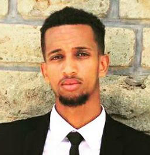A development trend
FEATURED PAPER
By Mustafe Abdillahi Omar1,2, Adebayo Adeboye Fashina1,3*, and Funke Folasade Fakunle4
1Project Management Program, School of Graduate Studies and Research, Gollis University, Hargeisa, Somaliland
2Management Science and Economics Department, Gollis University, 26 June District, Hargeisa, Somaliland
3Engineering Management Program and Project Management Program, School of Graduate Studies and Research, Gollis University, Hargeisa, Somaliland
4Health, Safety, and Environment Department, AdeFolasade Management Systems Consults, Lagos, Nigeria.
Abstract
Over the years, the global construction industry has been seen as a vital driving force for the development and sustainability of any country’s economy. This is because the need to secure a place for shelter, adequate means to move around and access to modern information technologies are all essential for human and its society’s sustenance. However, for the low-income countries with rural populations such as Somaliland, a working financing mechanism for road and building construction is of high significance. It is therefore, important to explore the sustainable and progressive development trend of the construction sectors in these countries. Consequently, this paper examined and briefly discussed the trend of construction practices and progress in Somaliland from the perspective of sustainable development. The status quo of the Somaliland construction industry is also carefully explored and discussed. Recommendations for the future formulation of strategies/measures that could guide the rapid development of the country’s construction sector are proposed for future sustainable housing and public safety. It is however clear, that more research studies need to be carried out regarding the Somaliland construction sector.
Keywords: Built Environment, Buildings, Roads, Construction Industry, Development Trend, Low-Income Countries, Somaliland
Introduction
Ever since the conception of the universe, construction have been a vital need for humans, particularly, the need to secure a place for shelter (Costanza et al., 2007; Shackleton & Shackleton, 2004). The initial construction project ever known to mankind is the building of a house (Hendrickson & Au, 2008; Pérez-Lombard, Ortiz, & Pout, 2008), and in no time, construction projects advanced to a point where it became a pursuit that required professionals and skilled works (Pérez-Lombard et al., 2008). In recent time however, there has been an increasing demand for public and private constructions in the low-income countries which indicates the implications of the construction industry to the development of these countries (Osei-Kyei & Chan, 2017). It thus, systematically contributes to the Gross Domestic Product (GDP) (Chia, Skitmore, Runeson, & Bridge, 2014) and Gross Fixed Capital Formation (GFCF) (Stupnikova & Sukhadolets, 2019) of these countries. As such, construction projects have mostly led to substantial economic and social benefits for the governments of these nations (Widstrand, 1978) as well as local and foreign contractors/developers, and the society at large (Eccles, 1981).
Furthermore, the construction industry also has a noteworthy influence on all facets of the socio-economic actions in many countries of the world (Frimpong, Oluwoye, & Crawford, 2003; Lamine et al., 2018; Shelbourn et al., 2006; Uranga, 1999). Construction kindles growth throughout the entire country and frontlines a country’s development (Giang & Sui Pheng, 2011). It contributes extensively to economic expansion by sustaining some of the fundamental objectives including job creation, income generation and redeployment (Watermeyer, 1995). Intriguingly, majority of the activities and operations in the construction industry are labor-intensive (Fakunle & Fashina, 2020), which makes construction globally a vibrant employer of labor (Zhou, Goh, & Li, 2015) and the most injury prone industry (Fakunle, Opiti, Sheikh, & Fashina, 2020). Experience from around the world constantly arrives at the same simple conclusion (Abbas, Mneymneh, & Khoury, 2018).
Like in most low-income countries, the Somaliland construction sector plays a vital role in the development and sustainability of the country’s economy (Sheikh, Fakunle, & Fashina, 2020; Uranga, 1999). However, unlike most countries where the government take on a vital role in the construction industry, the private sector has dominated the industry over the years in Somaliland, except for the road construction where budgetary allocation and contributions from donor agencies are the major sources of funding (Sheikh et al., 2020). Furthermore, the Somaliland construction industry now has a good image as an emerging construction market due to its significant performance over the past decade.
Although, Somaliland is presently witnessing an increasing growth in the construction industry, construction projects are expected to be on high demand in the coming years. Thus, in an effort to enable the Somaliland construction industry to realize its substantial roles in the economic growth and development processes of the country, it is essential to adequately understand the industry, its related features and processes, and how construction activities are carried out and managed. Within this context, this paper seeks to review the construction practices in Somaliland with the aims of providing an improved understanding on the status quo of Somaliland construction sector. This research work bridges the knowledge gaps between theory and practice regarding the Somaliland construction industry. This will thus assist future researchers that might want to carried out related study in Somaliland or elsewhere.
The first part of this paper presents the background introduction on construction and its significance. The second part reviews the theoretical aspect of construction projects with a focus on the project lifecycle. In addition, the construction practices in Somaliland are also presented in the third part before exploring the status quo of Somaliland construction industry in the fourth part of the paper. The last part of this paper presents the concluding notes and significant recommendations that could guild the rapid development of the country’s construction sector in terms of sustainable housing future and public safety.
More…
To read entire article, click here
How to cite this paper: Omar, M.A.; Fashina, A.A.; Fakunle, F.F. (2020). The status quo of Somaliland construction industry: A development trend; PM World Journal, Vol. IX, Issue III, May. Available online at https://pmworldlibrary.net/wp-content/uploads/2020/04/pmwj93-May2020-Omar-Fashina-Fakunle-Somaliland-construction-industry.pdf
About the Authors

Mustafe Abdillahi Omar
Hargeisa, Somaliland
![]()
Mustafe Abdillahi Omar is a member of Dr. Adebayo’s research group at Gollis University and an Assistant Lecturer in the department of management science and economics at same University. Mustafe hold a B.Sc. degree in Accounting & Finance and Master of Arts in Project Management from Gollis University, Hargeisa, Somaliland. His research interests evolve around the project and engineering management, engineering economics, construction management etc.
Mustafe can be contacted on asowe.160@gmail.com

Dr. Adebayo Adeboye Fashina
Hargeisa, Somaliland
![]()
Dr. Adebayo Adeboye Fashina is a young certified management consultant (CMC), professional researcher, educator and education management consultant with over eight years of significant international experience working on STEM education, EOMS/Project management research and teaching, science research and teaching, and capacity building at various levels of education across Africa.
Dr. Adebayo hold a Bachelor’s degree in Physics/Electronics, MSc. in Theoretical Physics and Ph.D. in Theoretical and Applied Physics. He currently works with Gollis University, Hargeisa as an Associate Professor of Physics and Engineering Management. Prior to his present job, he worked as a Researcher/GTA/Lecturer-B at AUST before joining Kampala International University, Uganda as a Senior Lecturer and later worked as an Associate Professor at William V. S. Tubman University, Liberia. He was nominated for the 2016 Sustainable Energy Africa Awards and shortlisted as one of the three finalists in the ”Emerging Leaders” award category at the 2016 Nigeria Energy Forum.
Dr. Adebayo has conducted training workshops, seminars and given speeches/talks/presentations at local and international conferences. He has published more than 20 articles in reputed journals and is an active reviewer of many international journals. He is a motivated, energetic and focused individual with strengths in innovative teaching approaches, interdisciplinary research, data analysis, teacher training and team management. His research interest includes sustainable living, project management, RE policy and management, education organization management system (EOMS), educational planning, photonic nanostructures of materials etc. He is a fellow of African Scientific Institute, USA and the Institute of Management Consultants, Nigeria.
Dr. Adebayo can be contacted on adebayofashina@gmail.com or afashina@gollisuniversity.org

Funke Folasade Fakunle
Lagos Nigeria
![]()
Funke Folasade Fakunle is a young female NEBOSH international diploma qualified professional with 10 years of significant QHSE experience in QHSE management, training and consultancy. Being passionate about Health, Safety and Environment (HSE) and management system in the workplace, she has acquired certifications in Process Safety: Hazard Operability study (HAZOP), Lean six sigma (Green Belt Holder), ISO 9001 Lead Auditor, OHSAS 18001 Lead Auditor, AOFAQ Level 3 Award in Education & Training, NEBOSH International Diploma in Occupational Safety and Health, NEBOSH International General Certificate in Occupational Safety and Health, Project Management, Rigging Safety and Inspection etc.
Funke received a B.Sc. degree in Mathematics from the University of Uyo, Akwa-Ibom, Nigeria in 2008. Over the past 10 years, she has gained significant QHSE experience in various industries. These include construction, oil & gas, logistics and transportation, telecommunication, manufacturing, banking and security sectors. She is a register Professional/Associated Member of the International Register of Certificated Auditors (IRCA), International Institute of Risk and Safety Management (IIRSM), and Society of Petroleum Engineers (SPE).
As an QHSE Consultant/Trainer at present, she conducts QHSE training, consulting and auditing/evaluation exercises that help improve the QHSE Management Systems of various organizations. This allows her to adequately provide her clients with the necessary advisory services that include but not limited to HSE employee orientation training, development, planning and implementation of QHSE Management Systems, QHSE auditing, Environmental Management System, process improvement and so on.
Funke can be contacted on funkefolasade7@gmail.com









